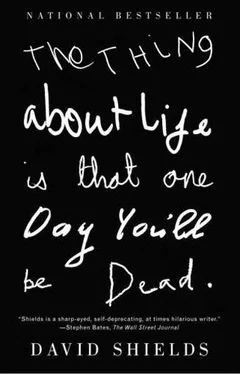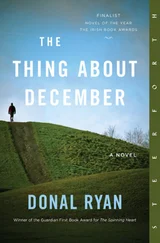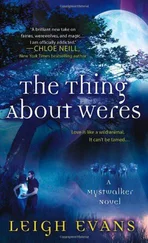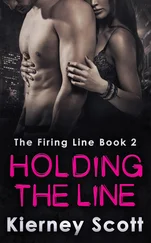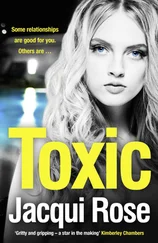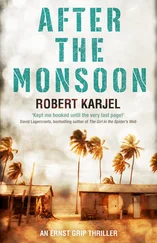In the late nineteenth century, August Weismann, a German biologist, made a distinction between “the immortality of reproductive cells, the cells in the body that carry genes forward to the next generation, and the mortality of the rest, which will age and die.” Death takes place, he said, “because a worn-out tissue cannot forever renew itself, and because a capacity for increase by means of cell-division is not everlasting but finite.”
Once a body’s mission is accomplished, nature has little interest in what happens next. Reproductive life spans of members of a species work as perfectly as possible to match the time an individual of that species might expect to survive before dying. In other words, physiological resources go into reproduction, not into prolonging life thereafter.
The force of natural selection declines with age. Natural selection has shaped human biology in such a way that aging and death become increasingly likely by the time you reach your 40s. If a disaster strikes a person who has passed the age of reproductive fitness, the consequences are by and large unimportant to the survival of the rest of the species.
Nature favors the accumulation of genes that do beneficial things early in life, even though they might do harmful things late in life, since—under normal conditions—most animals do not live long enough for the harmful effects to cause a problem. The same general mechanism that protects against cancer protects against aging. Long-lived species, with their better cellular protection, get cancer later than short-lived species.
The pineal gland is your internal clock. It knows how old you are, and it knows when you’re past your reproductive prime. As soon as it senses that you’re too old to reproduce effectively—around age 45—it begins to produce far lower levels of melatonin, which signals all of your other systems to break down and the aging process to begin. (Women’s larger pineal gland is another reason why women age more slowly than men, and it may be why they live longer.)
These low levels of melatonin cause, for instance, your immune system to shut down and your endocrine system to produce fewer sex hormones. Lower levels of sex hormones in turn lead to the atrophy of sexual organs in both men and women, to a decrease as well in sexual interest and the ability to perform. At 90, my father’s equipment finally quit.
In the late stages of adulthood, moths mimic the movements of juvenile moths, leading predators away from young moths and sacrificing their own lives, in order to benefit the species. What I’ve been trying to get to all along, in a way, is this: The individual doesn’t matter. You, Dad, in the large scheme of things, don’t matter. I, Dad, don’t matter. We’re vectors on the grids of cellular life. We carry 10 to 12 genes with mutations that are potentially lethal. These mutations are passed on to our children—you to me, me to Natalie. Aging followed by death is the price we pay for the immortality of our genes. You find this information soul-killing; I find it thrilling, liberating. Life, in my view, is simple, tragic, and eerily beautiful.
Asked what the meaning of life is, the paleontologist Stephen Jay Gould said, “We are here because one odd group of fishes had a peculiar fin anatomy that could transform into legs for terrestrial creatures; because comets struck the earth and wiped out the dinosaurs, thereby giving mammals a chance not otherwise available; because the earth never froze entirely during an ice age; because a small and tenuous species, arising in Africa a quarter of a million years ago, has managed, so far, to survive by hook and by crook. We may yearn for a ‘higher’ answer, but none exists.” (Darwin on Darwinism: “There is grandeur in this view of life.” Stoppard on evolution: “I’ve always thought the idea of God is absolutely preposterous, but slightly more plausible than the alternative proposition that, given enough time, some green slime could write Shakespeare’s sonnets.”)
Robert Wilkoske, who owns a wrecking company in Cheyenne, Wyoming, said, “Animals will fight to the death to try to survive. Even if it’s a rattlesnake swallowing a gopher. The gopher tries to get away, but after the snake gets ahold of him, he’s going down. That’s the way it is with a human, too. I’ve seen animals fight, I’ve seen animals fight when the odds were against them. They know they’re going to get whipped, but they’ll fight to the death to try to stay alive. It isn’t any particular thing we’re living for, just the instinct to stay alive. But I’m no authority.”
José Martinez, a taxi driver, said, “We’re here to die, just live and die. I do some fishing, take my girl out, pay taxes, do a little reading, then get ready to drop dead. You’re here or you’re gone. You’re like the wind. After you’re gone, other people will come. We’re gonna destroy ourselves, nothing we can do about it. It’s too late to make it better. You’ve got to be strong about it. The only cure for the world’s illness is nuclear war. Wipe everything out and start over.”
Woody Allen: “We are adrift, alone in the cosmos, wreaking monstrous violence on one another out of frustration and pain.” No punch line.
Wilfred Beckerman, a British economist, said, “The chances of mankind turning out to be more than just a blip in the process of evolution are very small.”
The rapper Ice-T said, “We’re here to stick our heads above the water for just a minute, look around, and go back under. A human being is just another animal in the big jungle. We have a lot of different instincts, and they’re all animal. We kill because we’re angry or need food. We have babies because it feels good and we want to care for other people. Once you have a kid, you look at the kid and see yourself again. You realize, ‘Oh, that’s why we’re here.’ Life is really short and you’re going to die, so you should leave someone else to keep his head above the water. Everything else is just passing time until the next generation, setting up shop. Just chill out and reproduce. Keep the species alive.”
Nicholas Vislocky, the assistant superintendent of a cemetery, said, “In the beginning, being a gravedigger bothered me. All you see is the grieving family. You carry the casket. You imagine the person who’s in there. And the thing that touches you most is the kids when they pass away. Their caskets are white, for purity, and they’re smaller, only like three feet long. They didn’t have a chance to experience anything. It’s like they were robbed of something. When you see the small white caskets, you appreciate the short, split-second lifetime you have.”
Shortly before his 97th birthday, when I asked my father what he’s learned over such a long life, he said, “The secret of a long, healthy life is to exercise every day even if it’s only for thirty minutes, and don’t let anything deter you from it.” When I explained that I meant not just how to live a long life but what it all amounted to, if anything, he shrugged and trotted out hoary “truths”: “There’s one comforting thing about the aging process: I’ll never have to do it again.” “Dying is easy. The least of us manage that. Living is the trick.” “On balance, the world is a much better place than it was in Brooklyn, New York, in 1910.” Which—the last—led him to consider what he might have achieved had he stayed in school and gotten his bachelor’s degree from CCNY, then a master’s in journalism from Columbia; perhaps he would have realized his fantasy: sports columnist for the New York Times (à la his hero Red Smith). This led to tears, though, so he cut short the discussion and said, “Let’s go for a walk,” which we did. He no longer plays tennis or golfs or jogs. He used to say that he could never imagine not being able to do at least five laps around Woodlake, totaling a little over a mile. Now he could barely shuffle his way around once, interspersed with frequent rests on benches.
Читать дальше
